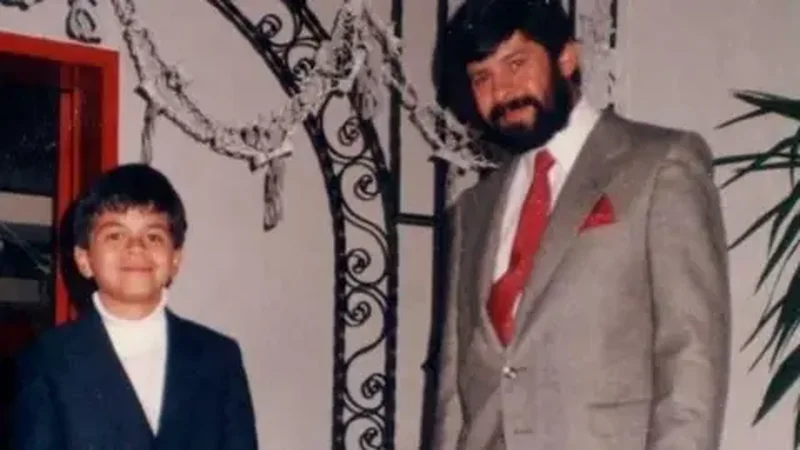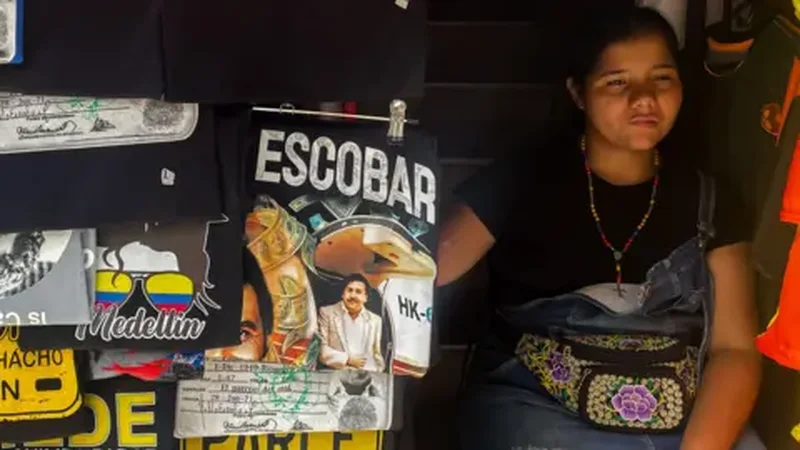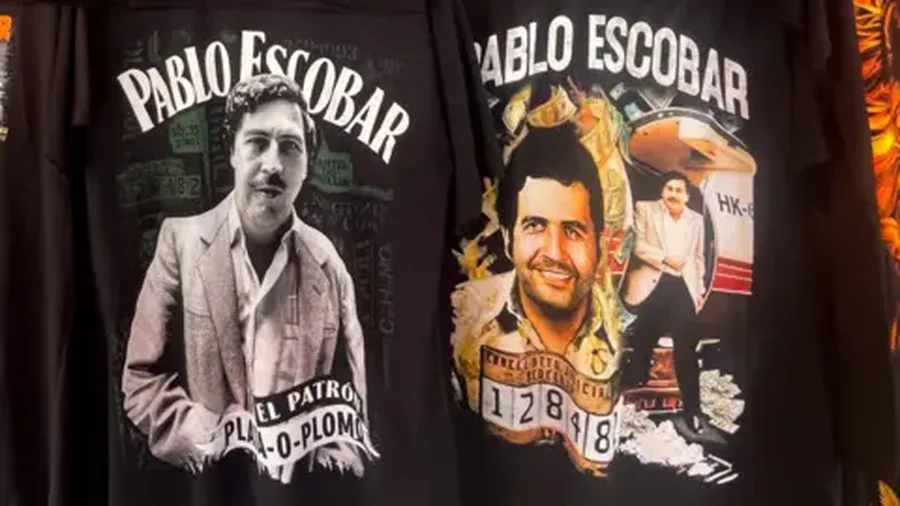
A bill proposed in Colombia's Congress aims to ban the sale of merchandise commemorating former drug lord Pablo Escobar. The initiative has sparked heated debate between those who support the ban and those who argue it will harm the local economy, writes A2 CNN.
On November 27, 1989, Gonzalo Rojas was just 10 years old when he learned the tragic news that his father had been killed in an air crash. Avianca Flight 203 was destroyed in mid-air by a bomb planted by the Medellín Cartel, killing 107 passengers and three people on the ground. This horrific act was one of many crimes committed by Escobar during his war against the Colombian state.
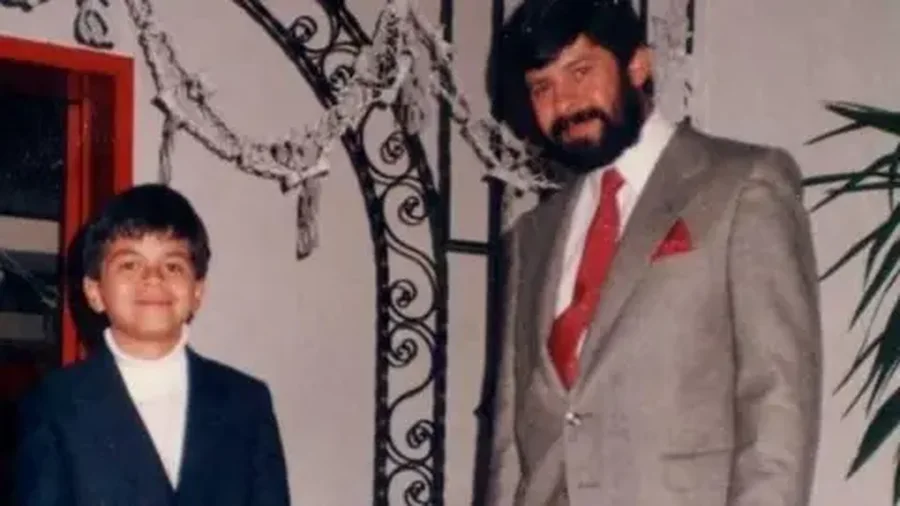
Although the years of drug wars and extreme violence have passed, Escobar's influence lives on. He has become a mythical figure in popular culture, thanks to books, music and series like "Narcos" on Netflix. In Colombia, his name and face can be found on T-shirts, souvenirs and various accessories, especially in the tourist areas of Medellín.
Draft law to ban cult of criminals
The proposed bill aims to ban not only the sale, but also the use and possession of clothing or objects that promote criminal figures like Escobar. Congressman Juan Sebastián Gómez, one of the authors of the law, argues that "the difficult issues that are part of our history cannot be reduced to a T-shirt or a sticker sold on a street corner."
If approved, the law will impose fines for those who violate the rules and temporarily suspend the activity of businesses that continue to sell these products.
Economics vs. ethics
Many vendors are concerned that such a ban would hurt their income. Joana Montoya, a shopkeeper in Medellín's Comuna 13, says that products with Escobar's image make up about 15% of her sales. For some, the percentage is as high as 60%.
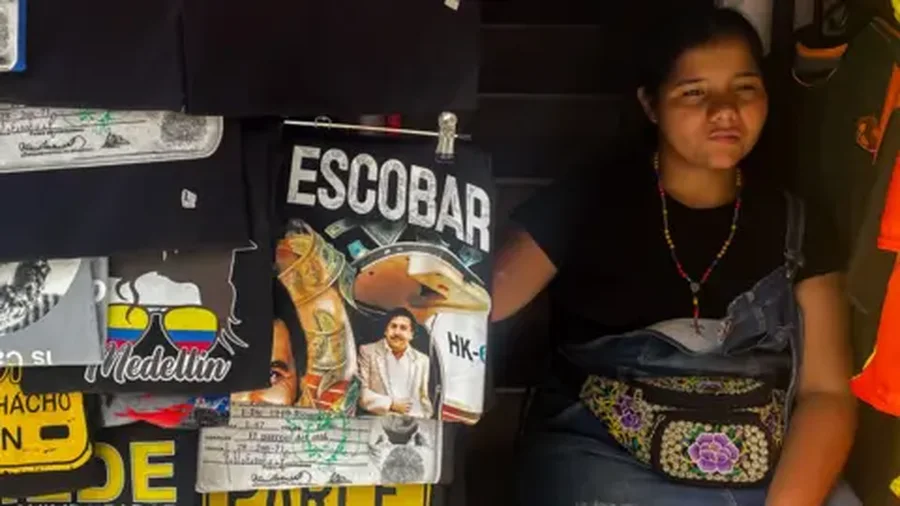
"This is catastrophic. We have the right to work and these Escobar T-shirts always sell well," she says, adding that this income helps poor families in the area.
On the other hand, others argue that profiting from products that glorify a criminal is wrong. "This ban is necessary. He did terrible things and these souvenirs should not exist," says Maria Suarez, who feels uncomfortable that her boss sells such items.
Changing Perceptions of Escobar
Some relatives of Escobar's victims see the law as an important step toward stopping his glorification. Gonzalo Rojas, who lost his father in the Avianca bombing, has worked to change the narrative about Escobar. He created the website narcostore.com, which purports to sell Escobar merchandise but instead features videos of victims' testimonies.
"When one day I saw a man with a T-shirt that said 'Pablo, President,' I was shocked and didn't know how to react," says Rojas. He emphasizes that education must be an essential part of the process so that younger generations don't see Escobar as a heroic figure.
A broad national debate
The bill must pass four stages in Congress to become law. However, it has already sparked a wide-ranging debate in Colombian society. The comparison with countries like Germany, where Nazi symbols are not allowed, or Italy and Chile, where items with the image of Mussolini or Pinochet are not sold, is an argument that supporters of the law often use.
The mayor of Medellín has publicly supported the law, calling this type of merchandise an “insult to the city, the country and the victims.” On the other hand, tourists continue to buy Escobar souvenirs, seeing him as a historical figure rather than a criminal.
Ultimately, the law is not intended to erase Escobar from history, but to dismantle the myth surrounding him and promote a memory that honors the victims. The debate over this issue continues to clash economic interests with the need for justice and historical reflection. (A2 Televizion)

